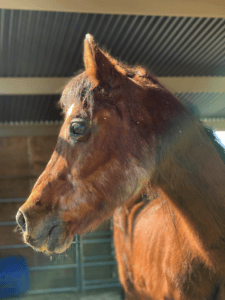
Meet Maya Benperla and Kalli Quigg, Founders of Viva Global rescue. President and co-founder of Viva Rescue, Maya is an equine rescuer and rehabilitation specialist who started her work caring for over 350 critically abused horses with serious medical, behavioral and trust issues. Maya rescued her first horse, Thunder, one of the Viva mascots, who inspired her to rescue more horses. It soon became her life’s work. Maya has an extensive background in medical and behavioral issues in horses, training, and rehabilitation.
Co-founder and rehabilitation specialist, Kalli began her work with neonatal kittens, caring for and treating infants and nursing them back to health. She also specializes in feral cat rescue, working in low-income communities with high feral cat populations. Kalli rescued her first kitten, Naomi who became Viva’s other mascot, and opening the doors to Viva’s cat rehabilitation programs. When Kalli was introduced to horses, she fell in love with the seniors, and has been rescuing and caring for horses ever since!
What is your favorite part about what you do?
My favorite part of what we do here at VIVA has got to be taking in horses that have worked their whole life and being able to give them that peace, support, respect and dignity for the end of their lives that they deserve. It’s always amazing to see old horses that are shocked that they now live in “horse heaven” as we call it with 24/7 care, feed 5 times a day, 30 different innovative therapies such as massage and Chiropractic care, and so much more! At first they are hesitant of accepting their new life but once they settle in they act as if they have been here forever! Lots of our seniors are very sassy!

Is there one (or several) rescues that stand out as especially significant or important?
I think one rescue that always stands out to me would be Winton, our 40 year old Arabian gelding that just recently passed. He came to us in the worst of shape- DSLD, neurological condition, congestive heart failure and more. He had a body score of 1 when he arrived and while most said he should be euthanized we decided to do everything in our power to give him a few days, weeks or months (we weren’t sure how long we had to help him before his body was ready to go). Winton lived 60 days with us but those must have been some of the happiest days of his life filled with mashes, grain, carrots, and so much love. Winton had a spirit like few horses we have rescued; he fought like he was a young horse, he did his best to assist us as we assisted him. He stood for the Farrier and for the vet and did the best he could to give himself a chance at recovering even though all the odds were stacked against him.
What do you wish people knew about the work that you do?
I wish more people understood that thousands of horses are slaughtered, abused and neglected each year. Many people we speak to are not aware of the extent of horses in need of rescue. We get hundreds of calls a month and we can only take so many in. It’s important to understand that horses in America are in great need of rescue from many different situations at ALL times.
What is your favorite activity to do with your horses?
I’d say one of my favorite things to do with them is play music for them, go on walks, or play enrichment games! (Hay balls/treat balls/fruit bobbing etc).
What are the most common animals you have to provide service for?
Most often it’s horses. Whether that is in natural disasters or abuse/neglect cases we get the most calls about horses and most of our programs are dedicated to horses and equines overall.
If you could change the world in one way, what would it be?
There so many things I would change if I could. The way wild mustangs are treated in this country, horse slaughter, kill pens etc…. but one simple thing I would change would be the way people think about horses older than 15-20 years old. Most of the calls we get are about old,lame, sick horses that need homes after 20+ years of working for humans. If only more people understood that after a horse has served you for years…why not help them retire and provide for them in their last years. I truly believe and know that if more people took that to heart and attempted to follow through with ensuring retirement for their horses, we would have hundreds and thousands less horses in need of placement in rescues each year.
